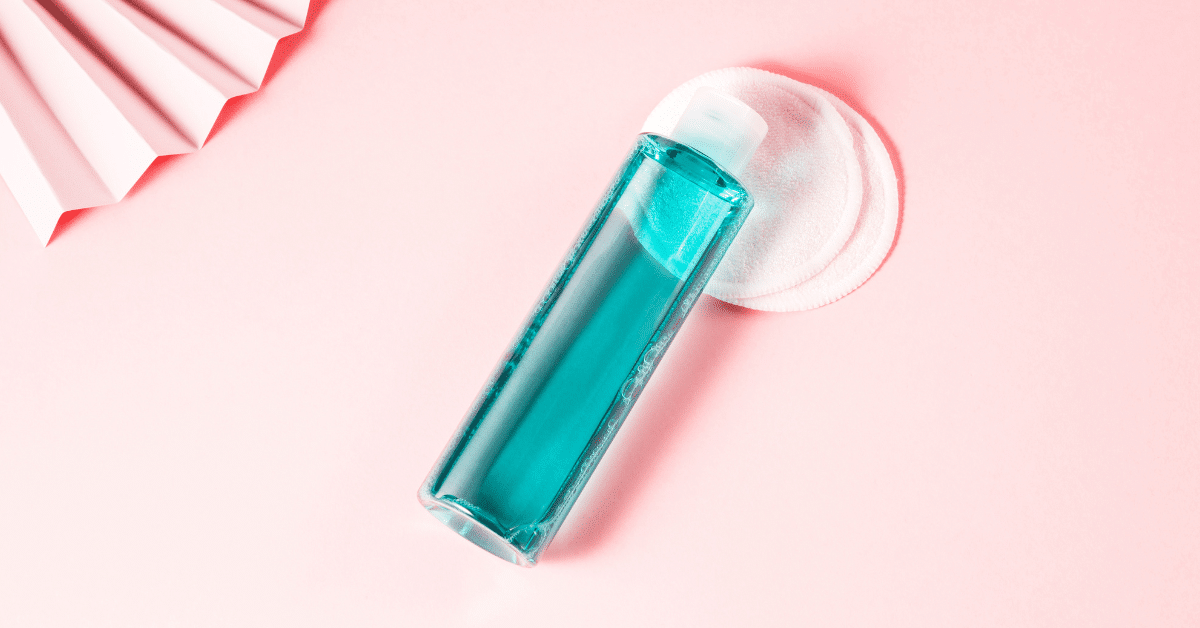
Our Blog

Ultimate Guide to Toners for Acne Prone Skin!
What is a Toner and How Does it Help Acne Prone Skin?
A toner is a liquid skincare product designed to balance your skin’s pH, remove any lingering impurities, and prepare your skin for the next steps in your routine. For those with acne-prone skin, a toner can be a game-changer. It helps to unclog pores, reduce inflammation, and prevent future breakouts.
Toners often contain powerful ingredients like salicylic acid and glycolic acid. Salicylic acid is a beta-hydroxy acid (BHA) that penetrates deep into the pores to exfoliate dead skin cells and dissolve excess oil, making it a fantastic choice for acne-prone skin. Glycolic acid, an alpha-hydroxy acid (AHA), promotes cell turnover and helps to improve skin texture and tone by gently exfoliating the skin’s surface.
Incorporating a toner into your skincare routine can visibly reduce redness, minimize the appearance of pores, and create a clean, balanced canvas for your other skincare products. By addressing the root causes of acne, such as excess oil and clogged pores, toners can help you achieve clearer, healthier skin.
Balance Your Skin and Reduce Breakouts
Struggling with acne-prone skin can be challenging, but the path to clear, radiant skin is not out of reach. A dedicated skin care routine should always contain a toner. Incorporating the right toner can make all the difference. In this guide, we’ll dive into the world of toners for acne-prone skin, exploring their benefits, key ingredients, and how to choose the perfect toner for your unique needs.
Toning isn’t just an extra step in your skincare routine – it’s a game-changer for acne-prone skin. Here’s why:
- Balanced pH Levels: Acne-prone skin often has an imbalanced pH, which can exacerbate breakouts. A good toner restores the skin’s pH, creating an environment less conducive to acne-causing bacteria.
- Pore Minimization: Enlarged pores can lead to clogged pores and breakouts. Certain toners contain ingredients that tighten pores, reducing the risk of debris accumulation.
- Gentle Exfoliation: Exfoliating toners with ingredients like salicylic acid, glycolic acid, or Mandelic Acid to help unclog pores, prevent whiteheads and blackheads, and promote cell turnover.
- Hydration: Acne-prone skin needs hydration too, but heavy creams can trigger breakouts. A hydrating toner offers moisture without overwhelming the skin.
Toning isn’t just an extra step in your skincare routine – it’s a game-changer for acne-prone skin. Here’s why:
- Balanced pH Levels: Acne-prone skin often has an imbalanced pH, which can exacerbate breakouts. A good toner restores the skin’s pH, creating an environment less conducive to acne-causing bacteria.
- Pore Minimization: Enlarged pores can lead to clogged pores and breakouts. Certain toners contain ingredients that tighten pores, reducing the risk of debris accumulation.
- Gentle Exfoliation: Exfoliating toners with ingredients like salicylic acid, glycolic acid, or Mandelic Acid to help unclog pores, prevent whiteheads and blackheads, and promote cell turnover.
- Hydration: Acne-prone skin needs hydration too, but heavy creams can trigger breakouts. A hydrating toner offers moisture without overwhelming the skin.
Best Toner for Sensitive Skin Acne Prone Skin – Key Ingredients
When shopping for toners for acne-prone skin, focus on these powerhouse ingredients:
Salicylic Acid: This beta-hydroxy acid (BHA) penetrates pores, exfoliates dead skin cells, and dissolves sebum. It’s excellent for preventing and treating acne. – Our Favorite Salicylic Toner!
- Mandelic Acid: This alpha hydroxy acid (AHA) is derived from bitter almonds. It’s known for its gentle exfoliating properties and targets hyperpigmentation. – 3% Mandelic Acid Toner
- Green Tea: Known for its antioxidant-rich properties. It contains compounds like catechins that have been linked to various health benefits and anti-inflammatory effects. This ingredient soothes skin, reduce redness, and provide protection against environmental damage.
- Glycolic Acid: a type of alpha hydroxy acid (AHA) derived from sugarcane. It’s widely used for its exfoliating properties, promoting cell turnover. – Glycolic Lactic Toner
- Skin Nourishing Ingredients: Look for toners that include niacinamide, ceramides, and hyaluronic acid. These ingredients help to replenish moisture while effectively cleansing the skin without stripping its natural oils.
Best Toner for Hyperpigmentation
Toners can benefit both hyperpigmentation and fighting acne due to their specific properties and active ingredients that target these skin concerns. Let’s explore how toners work for each of these issues:
Hyperpigmentation occurs when there is an overproduction of melanin in certain areas of the skin, resulting in dark spots or patches. Toners can help address hyperpigmentation in the following ways:
- Exfoliation: Many toners contain gentle exfoliating agents like alpha hydroxy acids (AHAs) or beta hydroxy acids (BHAs). These exfoliants help remove dead skin cells on the surface, encouraging the growth of new, even-toned skin cells and fading the appearance of dark spots over time.
- Brightening Ingredients: Some toners contain brightening agents like vitamin C or Mandelic acid. These ingredients work to inhibit melanin production and promote a more uniform skin tone.
- Increased Absorption: Toners can enhance the absorption of other products, such as serums or treatments formulated explicitly for hyperpigmentation. This allows these targeted treatments to penetrate deeper and work more effectively.
Acne is often caused by a combination of factors, including excess sebum production, clogged pores, and the proliferation of acne-causing bacteria. Toners can contribute to acne prevention and treatment through several mechanisms:
- Exfoliation: Exfoliating toners containing salicylic acid (a BHA) can penetrate into pores and help dissolve excess oil and dead skin cells, preventing clogs and reducing the formation of comedones (clogged pores).
- Oil Control: Some toners are formulated to balance oil production and control sebum. Ingredients like Glycolic Acid or Mandelic Acid can help regulate oil secretion without overly drying the skin.
- Antibacterial Properties: Certain toners contain antibacterial agents, such as tea tree oil or benzoyl peroxide, which target acne-causing bacteria on the skin’s surface, reducing the risk of breakouts.
- Reduced Inflammation: Toners with anti-inflammatory ingredients like chamomile or green tea can help calm redness and irritation associated with active breakouts.
- Hydration: Keeping the skin hydrated is essential even for acne-prone skin. Some toners provide lightweight hydration, helping to maintain the skin’s moisture balance without clogging pores.
- Soothe Irritated Skin: Toners with anti-inflammatory ingredients can also soothe irritated skin while combating acne. Ingredients like chamomile or green tea help reduce redness and irritation, providing a calming effect on the skin.
It’s important to note that while toners can be effective in addressing hyperpigmentation and acne, they will vary depending on individual skin types and the specific toner’s formulation. Consistency is vital – regular use of the right toner can yield positive changes in the appearance of hyperpigmentation and acne over time. If you have severe hyperpigmentation or persistent acne concerns, contact us for more in-depth help!
How to Choose the Right Toner
Selecting the ideal toner for acne-prone skin is crucial. Here are a few things to think about/look for when searching for the perfect toner for you!
- Skin Type: Consider whether your skin is oily, combination, or sensitive. Toners should be gentle yet effective.
- Ingredients: Opt for a toner containing acne-fighting ingredients that suit your skin’s needs. Read labels carefully.
- Alcohol-Free: Avoid toners with high alcohol content, as they can strip the skin and worsen inflammation.
- Patch Test: Before introducing a new toner, do a patch test to ensure your skin doesn’t react adversely.
Incorporating Toner Into Your Routine
Follow these steps for the best results:
- Cleanse: Start with a gentle cleanser to remove dirt and makeup.
- Tone: Apply your chosen toner with a cotton pad or your fingers. Gently pat it onto your skin.
- Serums and Moisturizers: Follow up with a lightweight, non-comedogenic serum and moisturizer.
- SPF: Finish your morning routine with a broad-spectrum sunscreen
Acne-prone skin demands thoughtful care, and the right toner can be a powerful ally on your journey to clear, radiant skin. With the right ingredients and a consistent routine, you can say goodbye to breakouts and hello to a complexion that exudes confidence.
Remember, everyone’s skin is unique. If you’re unsure which toner is best for you, consider reaching out to us for help! Cheers to healthier, happier skin ahead!
Common Mistakes to Avoid When Using a Toner
Using a toner can be incredibly beneficial for acne-prone skin, but there are several common mistakes that can hinder its effectiveness. Here’s what to watch out for:
- Choosing a Harsh Toner: Avoid toners with high alcohol content or strong fragrances, as these can irritate and dry out your skin, exacerbating acne and inflammation.
- Ignoring Your Skin Type: Make sure the toner you choose is suitable for your skin type. For instance, a toner that’s too drying can worsen dehydrated skin, while an overly rich toner can add to the excess oil in oily skin.
- Inconsistent Use: To see real benefits, use your toner consistently. Incorporate it into your daily skincare routine rather than using it sporadically.
- Incorrect Application: Follow the instructions on your toner. Using too much product or not allowing it to dry before applying other skincare items can reduce its effectiveness.
- Skipping the Patch Test: Always patch test a new toner on a small area of your skin before applying it to your face. This helps to ensure you don’t have any adverse reactions or sensitivities.
By avoiding these common pitfalls, you can maximize the benefits of your toner and improve your skin’s health. If you’re unsure which toner is best for your skin type and concerns, consulting with a board-certified dermatologist can provide personalized guidance and recommendations.

